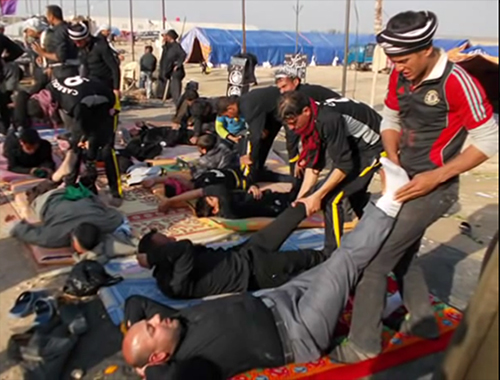verse7
- Details
- Hits: 2320
(7) وَاذْكُرُواْ نِعْمَةَ اللّهِ عَلَيْكُمْ وَمِيثَاقَهُ الَّذِي وَاثَقَكُم بِهِ إِذْ قُلْتُمْ سَمِعْنَا وَأَطَعْنَا وَاتَّقُواْ اللّهَ إِنَّ اللّهَ عَلِيمٌ بِذَاتِ الصُّدُورِ
7. " And remember Allah's favour on you and His covenant with which He has bound you, when you said: ' We hard and we obeyed '. And be in awe of Allah, surely Allah is aware of what is in the breasts."
Commentary:
Divine Convictions:
In this verse, the Qur'an attracts the attention of the Muslims to the importance of the endless bounties of Allah, the most magnificent of which is faith and guidance. It says:
" And remember Allah's favour on you ..."
What favour is greater than that Muslims obtained all kinds of merits, honours and possibilities in the shade of Islam? Islam caused a group of people who had been before dispersed, ignorant, blood-thirsty immoral, and corrupter to change into a society who became: orgonized, united, and intelligent, with abundant material and spiritual merits and possibilities.
Then, the verse reminds them the covenant that they have conpacted with Allah, and says:
"...and His covenant with which He has bound you, when you said: ' We hard and we obeyed '. ..."
This verse can be a hint to all the genetic and divine covenants, (the covenants that Allah has bound Man through primordial nature, or those that the holy Prophet (p.b.u.h.) has bound Muslims with in different circumstances.
Basing on many Islamic traditions, the objective meaning of ' covenant ', mentioned in the verse under discussion, is the mastership of Amir-ul-Mu'mineen Ali (a.s.). The covenant that the Prophet (p.b.u.h.) took from them in Qadir-i-Khum, on the day of Farewell Pilgrimage, and they accepted it, too.(1)
To emphasize on this meaning, at the end of the verse, the Holy Qur'an says:
"...and be in awe of Allah, surely Allah is aware of what is in the breasts."
It is also narrated from Imam Baqir (a.s.) who said that the holy Prophet (p.b.u.h.) stated both the prohibited things and the essentiality of mastership of Ali (a.s.) during Farewell Pilgrimage.(2)
(1) At-Tafsir-ul-Burhan, vol. 1, p. 454
(2) Tafsir-i-Jawami'-ul-Jami', vol. 2, p. 44











